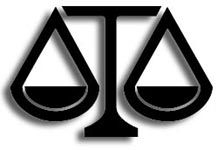Letters
Bar should implement a dues structure based on income
As a Wisconsin attorney, I strongly object to the State Bar Board of
Governors' recent approval of a $35 dues increase, which will take
effect on July 1, 1999, as reported in the March Wisconsin Lawyer.
I object because this dues increase will be disproportionately carried
on the backs of those attorneys who have the least ability to bear
it.
The current State Bar dues structure is very regressive and unfairly
penalizes active Wisconsin attorneys who have little or no income.
First, active attorneys with lower incomes currently pay the same flat
rate dues amount as attorneys with higher incomes. I firmly believe that
those attorneys who receive a greater benefit from the use of their law
licenses ought to pay more for that privilege than those attorneys who
have been less fortunate and, as a
result, have lower incomes.
 Second, the current State Bar dues structure favors fully
employed attorneys over attorneys who are active but underemployed or
unemployed. Most fully employed Wisconsin attorneys have their Bar dues
completely paid for by their employers, while underemployed and
unemployed attorneys generally must pay these dues out of their own
pockets. Under the current Bar dues structure, active status fully
employed attorneys who have the wherewithal to pay (through their higher
incomes) do not have to pay their own Bar dues (because the employer
pays them), while underemployed and unemployed attorneys with lower
incomes are required to pay these dues themselves (because no one else
does). Thus, the current Bar dues structure places a disproportionate
financial burden on those attorneys who have the least ability to
pay.
Second, the current State Bar dues structure favors fully
employed attorneys over attorneys who are active but underemployed or
unemployed. Most fully employed Wisconsin attorneys have their Bar dues
completely paid for by their employers, while underemployed and
unemployed attorneys generally must pay these dues out of their own
pockets. Under the current Bar dues structure, active status fully
employed attorneys who have the wherewithal to pay (through their higher
incomes) do not have to pay their own Bar dues (because the employer
pays them), while underemployed and unemployed attorneys with lower
incomes are required to pay these dues themselves (because no one else
does). Thus, the current Bar dues structure places a disproportionate
financial burden on those attorneys who have the least ability to
pay.
Many other Wisconsin professional associations (for example, the
Wisconsin Institute of CPAs, the State Medical Society of Wisconsin, and
the Wisconsin Education Association Council) already provide full dues
waivers or reduced dues allowances for their underemployed and
unemployed members. Also, several other state bar associations (for
example, California, Minnesota, Indiana, and Illinois) currently have
progressive dues structures based upon the income levels of their
attorney members.
I would like to see the State Bar of Wisconsin implement a
progressive dues structure for its active attorneys that is based upon
their income levels. The current dues structure is highly regressive and
unfair to active attorneys with lower incomes. Like other state bar
associations and professional organizations have already done, our State
Bar should implement a dues structure that allows its active members
with lower incomes to pay at reduced annual rates (regardless of how
many years they have been in practice). Such an approach is the most
equitable way to solve the problems that plague our current State Bar
dues structure.
Jeffrey M. Gonyo
Slinger
Wisconsin Lawyer
